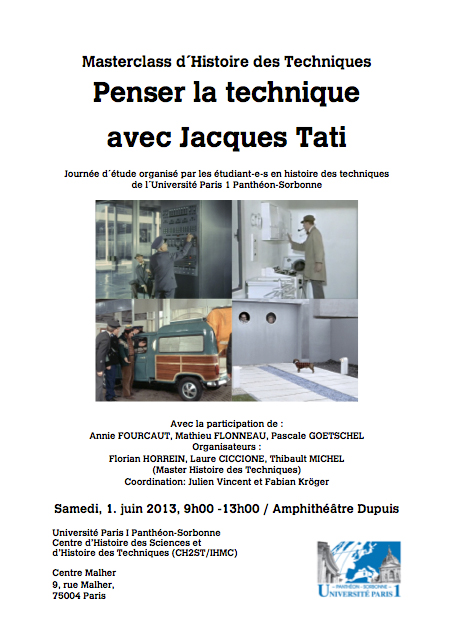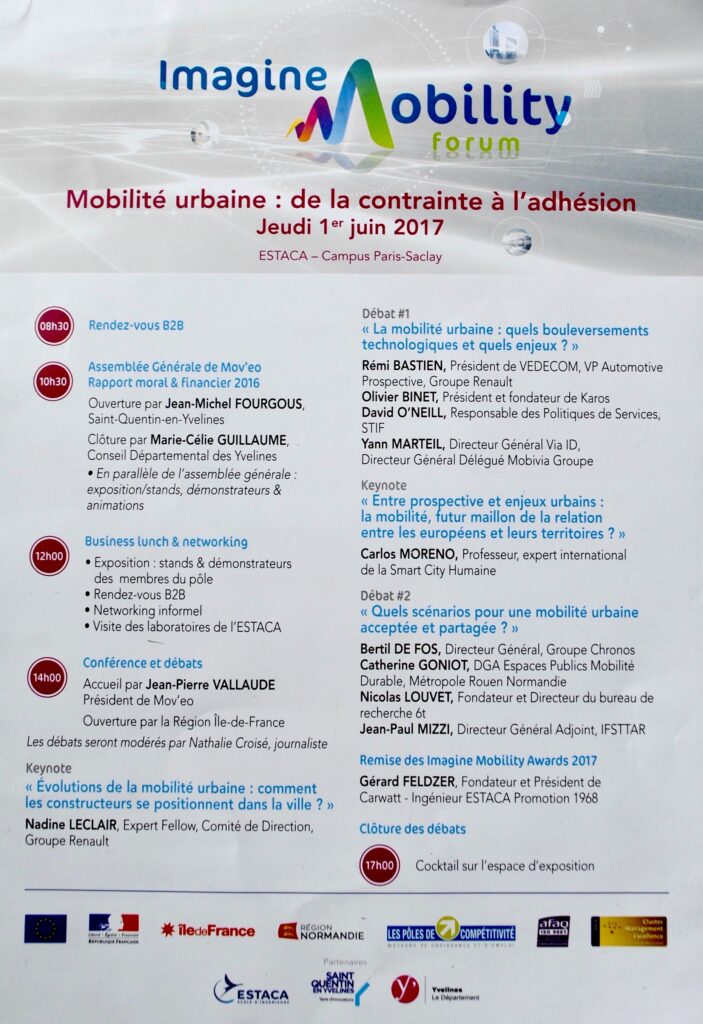During my talk on March 21, 2024 at the History of Science / History of Innovations interfaculty seminar – held every Thursday at the Sorbonne’s Maison de la Recherche – I presented a few key elements from my book on the research history of autonomous driving.
The course is led by Pascal Griset (specialist in the history of innovation, Director of the Institut des sciences de la communication, Université Paris-Sorbonne), Mathieu Flonneau (specialist in urban history, mobility and automobility, Director of the Institut Administration Economique et Sociale, Université Paris 1- Panthéon-Sorbonne) and Léonard Laborie (specialist in the history of international technical and scientific relations in the contemporary era, CNRS research fellow).
Many thanks to Léonard Laborie for this invitation and for his introduction, which made the link between my thesis on car accidents and the dream of an autonomous vehicle.
To introduce students to the subject, I presented the different concepts and historical periods of autonomous driving:
- 1950s/1960s: The guide-wire concept
- 1960s: The concept of mobile robotics
- 1970s: The shift to Computer Vision approaches
- 1980s: Major projects with mobile laboratories
- 1990s: International demonstrations
For more details, please consult my book:
Kröger, Fabian. From Automated to Autonomous Driving. A Transnational Research History on Pioneers, Artifacts and Technological Change (1950-2000). Springer: Cham 2024. 300 p. (Forthcoming: April 27, 2024).
The students asked some excellent questions during the debate, so I’d like to share them with you:
- Could accidents completely disappear in 100% autonomous traffic?
- What role could autonomous cars play in a surveillance society and in autocratic regimes?
- Will the big three historical players in research – USA, Japan, Europe – remain at the forefront in the future? Which region is likely to catch up?
- Is it true that autonomous vehicles have now disappeared from fiction movies? If so, why?
- How well have researchers from different countries worked together?
- Has the danger of computer attacks on autonomous vehicles ever been mentioned before the year 2000?
- Why was most of the automotive industry absent from this research?
- When did Volvo start working on the autonomous vehicle?
- And finally, a very good methodological question: How did you manage to read articles in Japanese?
Over the coming weeks, I’ll be trying to answer some of these questions in more detail, here on this blog.


